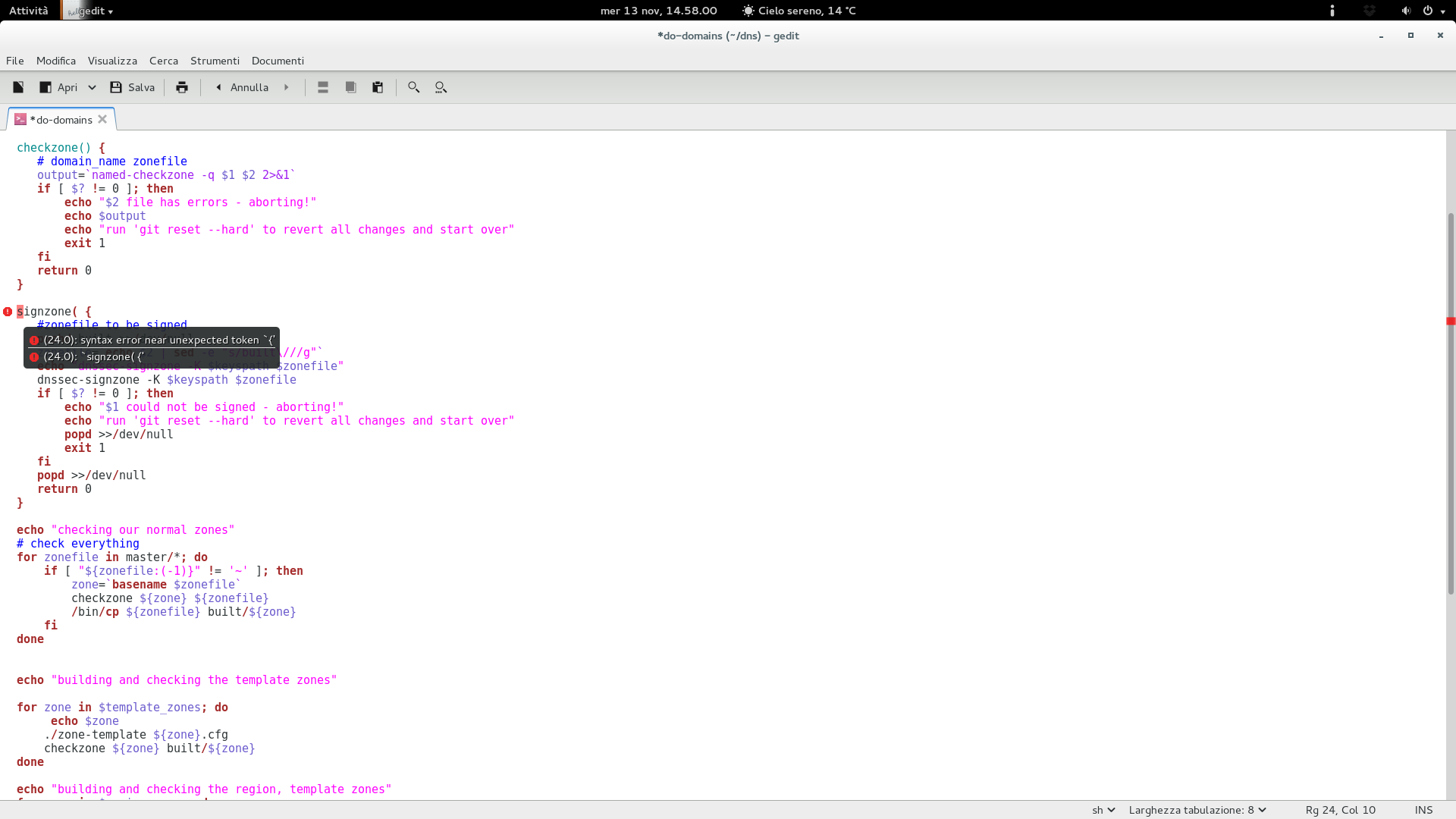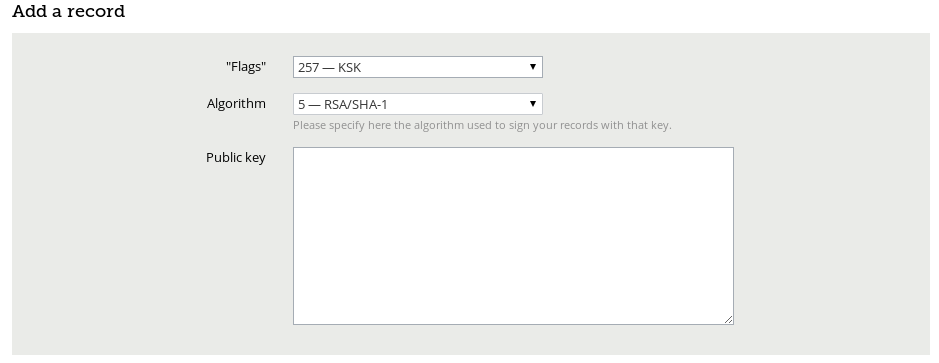Simon Josefsson: Classic McEliece goes to IETF and OpenSSH
My earlier work on Streamlined NTRU Prime has been progressing along. The IETF document on sntrup761 in SSH has passed several process points. GnuPG s libgcrypt has added support for sntrup761. The libssh support for sntrup761 is working, but the merge request is stuck mostly due to lack of time to debug why the regression test suite sporadically errors out in non-
sntrup761 related parts with the patch.
The foundation for lattice-based post-quantum algorithms has some uncertainty around it, and I have felt that there is more to the post-quantum story than adding sntrup761 to implementations. Classic McEliece has been mentioned to me a couple of times, and I took some time to learn it and did a cut n paste job of the proposed ISO standard and published draft-josefsson-mceliece in the IETF to make the algorithm easily available to the IETF community. A high-quality implementation of Classic McEliece has been published as libmceliece and I ve been supporting the work of Jan Moj to package libmceliece for Debian, alas it has been stuck in the ftp-master NEW queue for manual review for over two months. The pre-dependencies librandombytes and libcpucycles are available in Debian already.
All that text writing and packaging work set the scene to write some code. When I added support for sntrup761 in libssh, I became familiar with the OpenSSH code base, so it was natural to return to OpenSSH to experiment with a new SSH KEX for Classic McEliece. DJB suggested to pick mceliece6688128 and combine it with the existing X25519+sntrup761 or with plain X25519. While a three-algorithm hybrid between X25519, sntrup761 and mceliece6688128 would be a simple drop-in for those that don t want to lose the benefits offered by sntrup761, I decided to start the journey on a pure combination of X25519 with mceliece6688128. The key combiner in sntrup761x25519 is a simple SHA512 call and the only good I can say about that is that it is simple to describe and implement, and doesn t raise too many questions since it is already deployed.
After procrastinating coding for months, once I sat down to work it only took a couple of hours until I had a successful Classic McEliece SSH connection. I suppose my brain had sorted everything in background before I started. To reproduce it, please try the following in a Debian testing environment (I use podman to get a clean environment).
# podman run -it --rm debian:testing-slim
apt update
apt dist-upgrade -y
apt install -y wget python3 librandombytes-dev libcpucycles-dev gcc make git autoconf libz-dev libssl-dev
cd ~
wget -q -O- https://lib.mceliece.org/libmceliece-20230612.tar.gz tar xfz -
cd libmceliece-20230612/
./configure
make install
ldconfig
cd ..
git clone https://gitlab.com/jas/openssh-portable
cd openssh-portable
git checkout jas/mceliece
autoreconf
./configure # verify 'libmceliece support: yes'
make # CC="cc -DDEBUG_KEX=1 -DDEBUG_KEXDH=1 -DDEBUG_KEXECDH=1"./ssh -Q kex and it should mention mceliece6688128x25519-sha512@openssh.com.
To have it print plenty of debug outputs, you may remove the # character on the final line, but don t use such a build in production.
You can test it as follows:
./ssh-keygen -A # writes to /usr/local/etc/ssh_host_...
# setup public-key based login by running the following:
./ssh-keygen -t rsa -f ~/.ssh/id_rsa -P ""
cat ~/.ssh/id_rsa.pub > ~/.ssh/authorized_keys
adduser --system sshd
mkdir /var/empty
while true; do $PWD/sshd -p 2222 -f /dev/null; done &
./ssh -v -p 2222 localhost -oKexAlgorithms=mceliece6688128x25519-sha512@openssh.com dateOpenSSH_9.5p1, OpenSSL 3.0.11 19 Sep 2023 ... debug1: SSH2_MSG_KEXINIT sent debug1: SSH2_MSG_KEXINIT received debug1: kex: algorithm: mceliece6688128x25519-sha512@openssh.com debug1: kex: host key algorithm: ssh-ed25519 debug1: kex: server->client cipher: chacha20-poly1305@openssh.com MAC: <implicit> compression: none debug1: kex: client->server cipher: chacha20-poly1305@openssh.com MAC: <implicit> compression: none debug1: expecting SSH2_MSG_KEX_ECDH_REPLY debug1: SSH2_MSG_KEX_ECDH_REPLY received debug1: Server host key: ssh-ed25519 SHA256:YognhWY7+399J+/V8eAQWmM3UFDLT0dkmoj3pIJ0zXs ... debug1: Host '[localhost]:2222' is known and matches the ED25519 host key. debug1: Found key in /root/.ssh/known_hosts:1 debug1: rekey out after 134217728 blocks debug1: SSH2_MSG_NEWKEYS sent debug1: expecting SSH2_MSG_NEWKEYS debug1: SSH2_MSG_NEWKEYS received debug1: rekey in after 134217728 blocks ... debug1: Sending command: date debug1: pledge: fork debug1: permanently_set_uid: 0/0 Environment: USER=root LOGNAME=root HOME=/root PATH=/usr/bin:/bin:/usr/sbin:/sbin:/usr/local/bin MAIL=/var/mail/root SHELL=/bin/bash SSH_CLIENT=::1 46894 2222 SSH_CONNECTION=::1 46894 ::1 2222 debug1: client_input_channel_req: channel 0 rtype exit-status reply 0 debug1: client_input_channel_req: channel 0 rtype eow@openssh.com reply 0 Sat Dec 9 22:22:40 UTC 2023 debug1: channel 0: free: client-session, nchannels 1 Transferred: sent 1048044, received 3500 bytes, in 0.0 seconds Bytes per second: sent 23388935.4, received 78108.6 debug1: Exit status 0Notice the
kex: algorithm: mceliece6688128x25519-sha512@openssh.com output.
How about network bandwidth usage? Below is a comparison of a complete SSH client connection such as the one above that log in and print date and logs out. Plain X25519 is around 7kb, X25519 with sntrup761 is around 9kb, and mceliece6688128 with X25519 is around 1MB. Yes, Classic McEliece has large keys, but for many environments, 1MB of data for the session establishment will barely be noticeable.
./ssh -v -p 2222 localhost -oKexAlgorithms=curve25519-sha256 date 2>&1 grep ^Transferred Transferred: sent 3028, received 3612 bytes, in 0.0 seconds ./ssh -v -p 2222 localhost -oKexAlgorithms=sntrup761x25519-sha512@openssh.com date 2>&1 grep ^Transferred Transferred: sent 4212, received 4596 bytes, in 0.0 seconds ./ssh -v -p 2222 localhost -oKexAlgorithms=mceliece6688128x25519-sha512@openssh.com date 2>&1 grep ^Transferred Transferred: sent 1048044, received 3764 bytes, in 0.0 secondsSo how about session establishment time?
date; i=0; while test $i -le 100; do ./ssh -v -p 2222 localhost -oKexAlgorithms=curve25519-sha256 date > /dev/null 2>&1; i= expr $i + 1 ; done; date Sat Dec 9 22:39:19 UTC 2023 Sat Dec 9 22:39:25 UTC 2023 # 6 seconds date; i=0; while test $i -le 100; do ./ssh -v -p 2222 localhost -oKexAlgorithms=sntrup761x25519-sha512@openssh.com date > /dev/null 2>&1; i= expr $i + 1 ; done; date Sat Dec 9 22:39:29 UTC 2023 Sat Dec 9 22:39:38 UTC 2023 # 9 seconds date; i=0; while test $i -le 100; do ./ssh -v -p 2222 localhost -oKexAlgorithms=mceliece6688128x25519-sha512@openssh.com date > /dev/null 2>&1; i= expr $i + 1 ; done; date Sat Dec 9 22:39:55 UTC 2023 Sat Dec 9 22:40:07 UTC 2023 # 12 secondsI never noticed adding
sntrup761, so I m pretty sure I wouldn t notice this increase either. This is all running on my laptop that runs Trisquel so take it with a grain of salt but at least the magnitude is clear.
Future work items include:
- Use a better hybrid mode combiner than SHA512? See for example KEM Combiners.
- Write IETF document describing the Classic McEliece SSH protocol
- Submit my patch to the OpenSSH community for discussion and feedback, please review meanwhile!
- Implement a mceliece6688128sntrup761x25519 multi-hybrid mode?
- Write a shell script a la sntrup761.sh to import a stripped-down mceliece6688128 implementation to avoid having OpenSSH depend on libmceliece?
- My kexmceliece6688128x25519.c is really just kexsntrup761x25519.c with the three calls to sntrup761 replaced with mceliece6688128. This should be parametrized to avoid cut n paste of code, if the OpenSSH community is interested.
- Consider if the behaviour of librandombytes related to closing of file descriptors is relevant to OpenSSH.
sntrup761 on my machine.
Update 2023-12-26: An initial IETF document draft-josefsson-ssh-mceliece-00 published.
 Uhm, salsa is not resolving:
Uhm, salsa is not resolving:
 After my
After my  OpenSSH has this very nice setting,
OpenSSH has this very nice setting,  If you are in a situation where you want to set up a SFTP server in a more secure way, don't want to expose anything from the server via SFTP and do not want to enable SSH login on the account allowed to sftp, you might find the information below useful.
If you are in a situation where you want to set up a SFTP server in a more secure way, don't want to expose anything from the server via SFTP and do not want to enable SSH login on the account allowed to sftp, you might find the information below useful. Today I ll be working out how to properly configure
Today I ll be working out how to properly configure 
